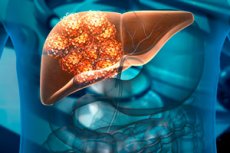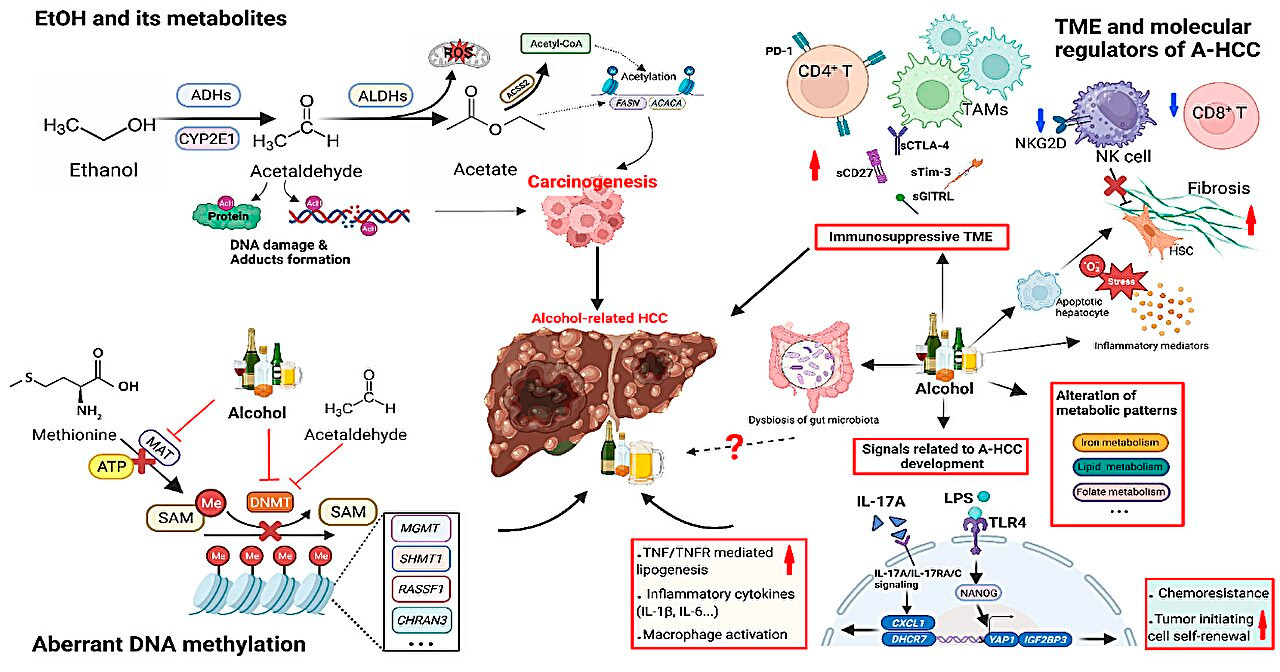
尽管过量饮酒是众所周知的肝癌风险因素,但酒精促进酒精性肝细胞癌(A-HCC)发展的确切机制仍不清楚。
这篇发表于《肝病学》(Hepatology)杂志的综述全面总结了急性肝细胞癌(A-HCC)的发病机制、异质性、临床前治疗方案、表观遗传学和遗传学特征。与其他类型的肝癌相比,A-HCC 通常诊断时已是晚期,病情已经较为严重。这部分是由于酒精性肝病 (ALD) 患者缺乏可用的筛查工具。
“A-HCC 是一个重大的公共卫生问题,”该综述的主要作者付耀杰说道。“我们的研究强调了了解酒精及其代谢物如何促成这种恶性肝癌的重要性。通过探索 A-HCC 的独特特征,我们希望开发出更好的诊断工具和治疗方案。”
饮酒与急性肝细胞癌 (A-HCC) 风险之间存在密切联系。大量饮酒者患这种恶性肝癌的风险更高。然而,酒精导致 A-HCC 发展的确切原因尚不完全清楚。
与其他病因引起的肝细胞癌 (HCC) 相比,酒精性肝硬化 (A-HCC) 通常诊断较晚,病情已发展到更晚期。这可能是由于酒精性肝病 (ALD) 患者缺乏可用的筛查方法所致。因此,作者提出,对酒精性肝硬化患者进行 HCC 筛查和监测,以及更精准的风险分层方法,对于 A-HCC 的早期干预至关重要。

乙醇及其代谢物、表观遗传修饰、各种代谢改变、免疫抑制性肿瘤微环境 (TME) 以及致癌信号通路均参与了酒精性肝细胞癌 (A-HCC) 的发生发展。
资料来源:付耀杰、Maccioni、Luca、王欣、魏欣、Greten、Tim F、高斌。
在本综述中,作者还探讨了遗传因素在急性肝细胞癌(A-HCC)发展中的潜在作用。某些特定基因的单核苷酸多态性 (SNP) 可能会改变酒精性肝硬化的风险和 A-HCC 的易感性。然而,仍需更多研究来阐明 SNP 影响 A-HCC 进展的潜在机制。
此外,本综述还强调了A-HCC的分子机制和异质性。开发更完善的临床前模型对于深入了解A-HCC的特征以及在临床实践中预防和个性化治疗A-HCC至关重要。

